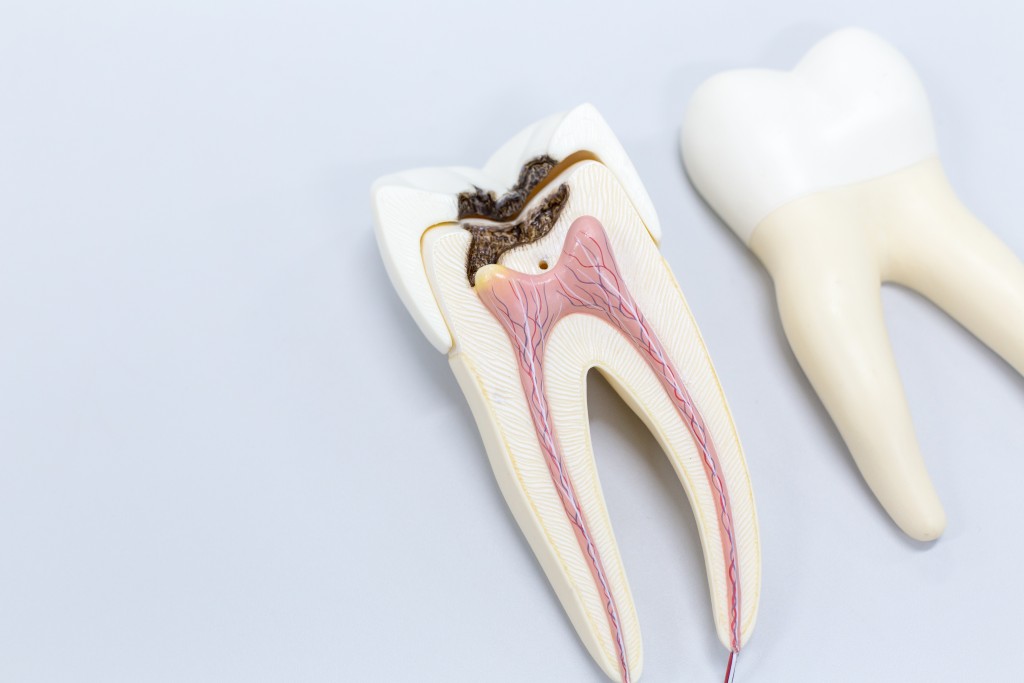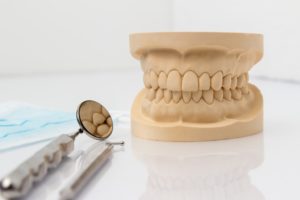Oral infections are common in both children and adults. If left untreated, they can spread to adjacent tissue or bones in your mouth, forming dental abscesses or inflammations. It’s important to practise good oral hygiene to steer clear of oral infections such as:
Periodontitis
This is an infection of the gums and a major cause of tooth loss in adults. According to the American Dental Association, up to 47 per cent of adults aged 30 and older had periodontitis. Warning signs of periodontitis include bleeding, swollen or tender gums, bad breath, or bad taste. If you have periodontitis and don’t get treatment, you may develop a series of complications such as recurrent gum abscesses, receding gums, and loss of teeth.
Multiple studies have proven that a saltwater rinse can be very helpful with healing inflamed gums. Saltwater may also reduce bacteria, remove particles or blood, and relieve bad breath.
Another home remedy for periodontitis is lemongrass oil. One 2015 study found lemongrass oil to be more effective than traditional chlorhexidine mouthwash at reducing plaque and gingivitis levels in the mouth. Lemongrass oil is safe to use, but it is very potent. Always start with a highly diluted solution: two to three drops of lemongrass oil per one cup of water.
Dental Caries

According to the Centers for Disease Control and Prevention, the prevalence of dental caries (untreated and treated) in the U.S. is 45.8 per cent. Dental caries or cavities are caused by a combination of factors such as not cleaning the mouth well and frequent snacking and sipping sugary drinks. Cavities are especially common in children, teenagers, and older adults.
If a cavity isn’t treated, it can get larger and affect deeper layers of the teeth. Cavities can cause severe toothache, infection, and tooth loss. As the decay gets larger, it may cause symptoms such as toothache, tooth sensitivity, visible holes or pits in the teeth, and pain when chewing food.
Aside from regular dental visits, there are ways to prevent cavities such as brushing your teeth and braces (if you have) with fluoride toothpaste, cutting down on sugary food, and eating food rich in vitamin D and calcium.
Oral Herpes
This is a mouth infection caused by the herpes simplex virus type 1 (HSV-1). According to Johns Hopkins Medicine, 50 to 80 per cent of adults in the U.S. have oral herpes. Unfortunately, once infected, a person will have the herpes simplex virus for the rest of their life. It can be spread by engaging in intimate contact (e.g. oral sex and kissing) with someone who’s infected (i.e. individuals with an active outbreak).
Symptoms of oral herpes include severe, flu-like symptoms, headaches, and swollen lymph nodes. But some people may exhibit no symptoms at all. During the infection, sores can occur on and around the lips and throughout the mouth. Since oral herpes is spread through contact, the best method of prevention is to avoid intimate contact with a person who has an active outbreak.
While some infections can be cured with a visit to the dentist, others are permanent and can stick around for a lifetime. This is why everyone should practice good oral hygiene.



















